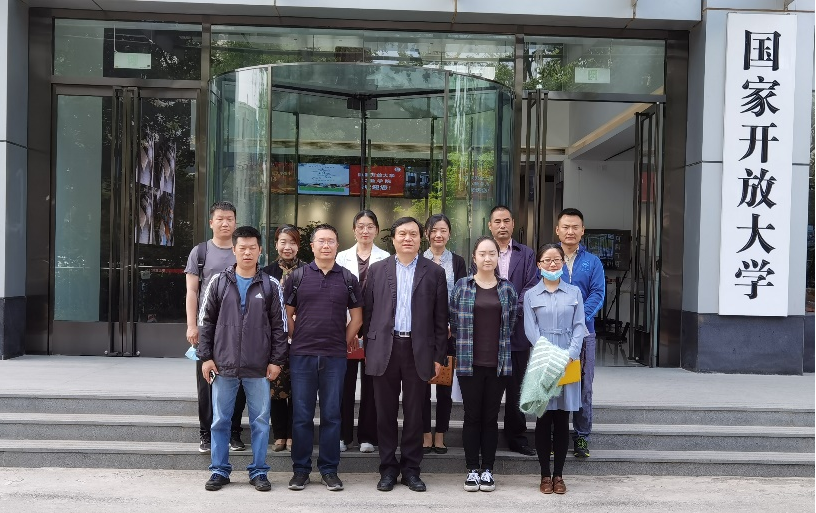 Recently, a delegation of 12 headed by Song Jihua, a professor in the School of Artificial Intelligence, a doctoral advisor, and director of the Language Resource-research Centre of Beijing Normal University, visited the Weigongcun campus of the Open University of China (OUC) to investigate its use of information technology (IT).
Recently, a delegation of 12 headed by Song Jihua, a professor in the School of Artificial Intelligence, a doctoral advisor, and director of the Language Resource-research Centre of Beijing Normal University, visited the Weigongcun campus of the Open University of China (OUC) to investigate its use of information technology (IT).

The OUC Weigongcun campus is an “Internet + Smart Teaching” demonstration study centre launched by the university as part of its process of building an “Internet-plus” university. The study centre provides diverse IT services suited to the needs of both degree and non-degree students as well as online and offline teaching. The centre consists of a “smart” conference hall, 5G + holographic classroom, virtual studio, digital-experience centre, VR-training centre, and 30 IT-enabled classrooms integrated with a cloud network. Use of new technologies such as 5G, AI, VR, big data, and others, has made it possible to gain entry to the campus using a QR code, schedule use of teaching and mobile-office spaces, record classes using portable devices, deliver classes remotely in real time, monitor spaces and teaching, conduct data analysis of teaching processes, support offline face-to-face instruction and small-group discussions, and so on, demonstrating the possibilities of “Internet-plus” education, and establishing a model of future study centres at the open university.
The delegation was impressed by what the OUC had accomplished, and discussed the integration of online and offline teaching, the use of 5G, and other topics. Song said that the centre boosts the application of new technologies in teaching, making administration more efficient, enabling personal teaching support, helping promote innovative teaching reform, and establishing a model of the use of IT for other universities.
By Wei Fangfang, OUC